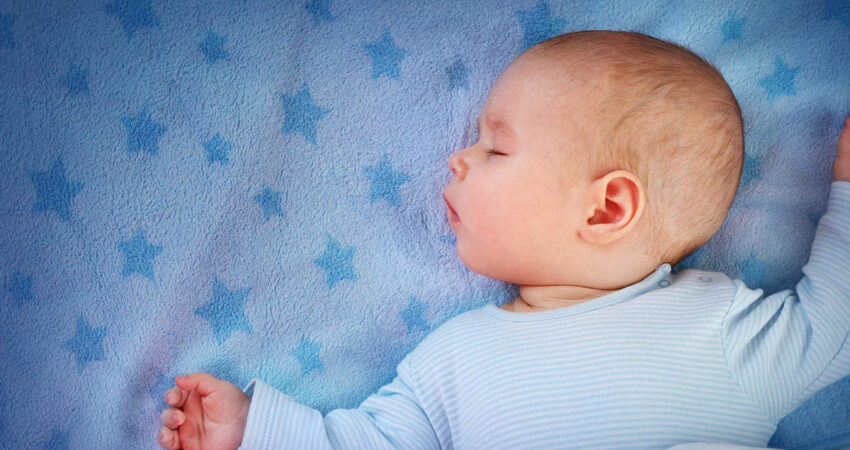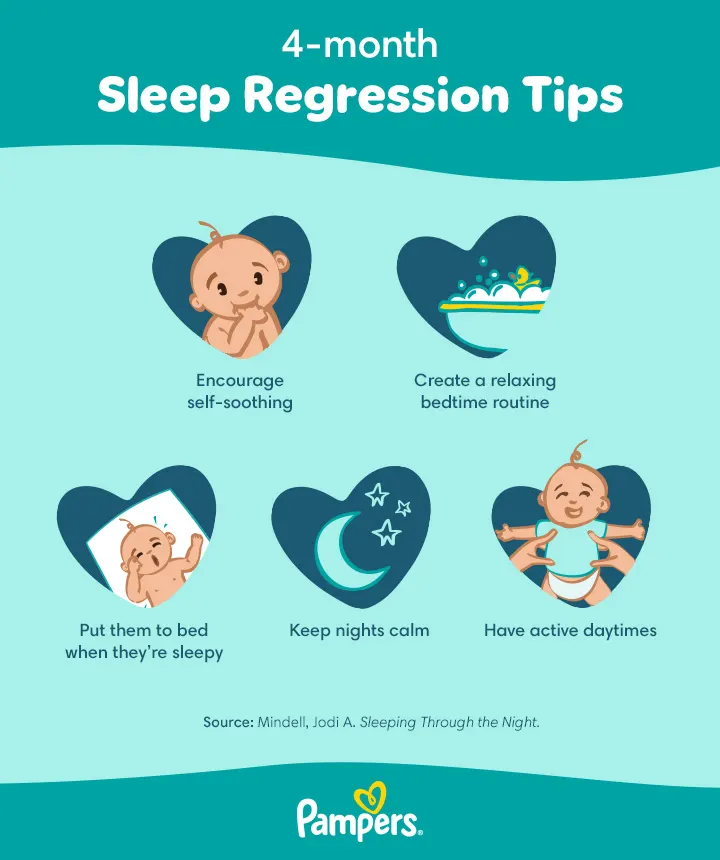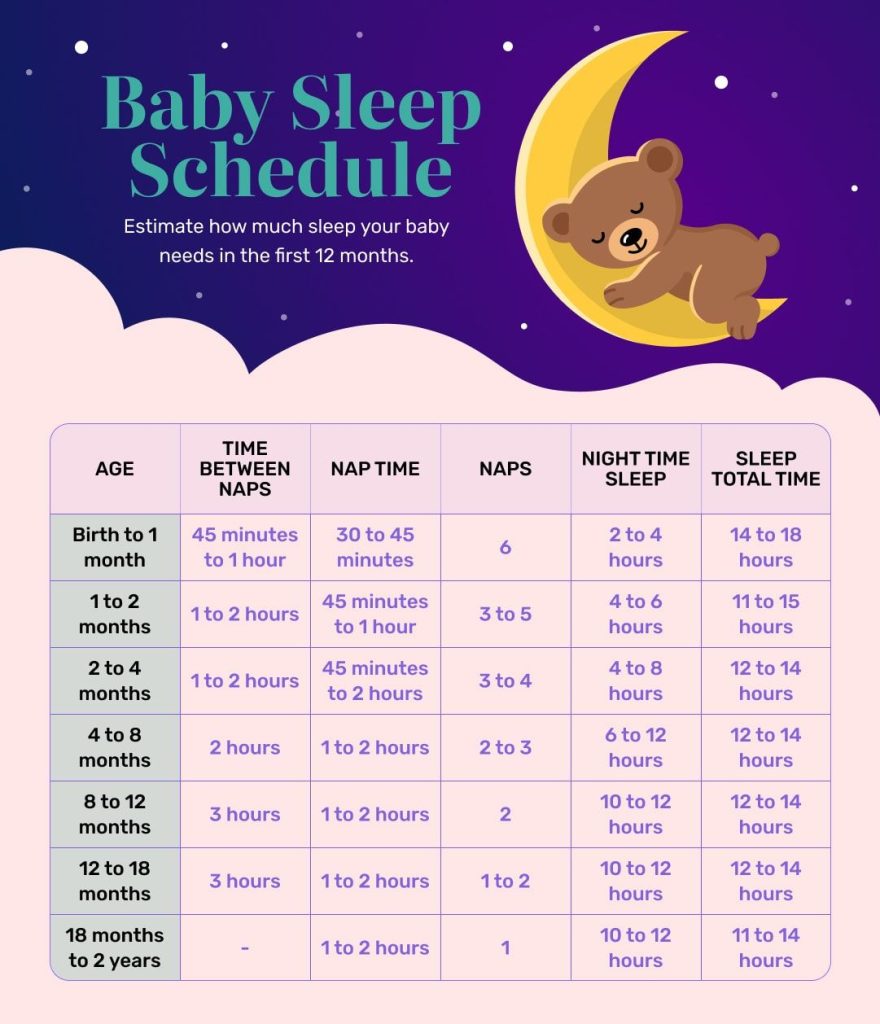Sleep training will not harm your baby if done correctly. It helps babies develop healthy sleep habits.
Parents often worry about sleep training. They fear it might negatively impact their baby’s well-being. The good news is that sleep training, when done properly, is safe and beneficial. It helps babies learn how to fall asleep independently and stay asleep longer.
This process promotes better rest for both the baby and parents. Pediatricians agree that establishing a sleep routine is crucial for a child’s development. Sleep training methods, such as the Ferber method or gentle sleep training, can be adapted to suit individual needs. Ensuring a consistent bedtime routine is key to successful sleep training. Always consult with a pediatrician for personalized advice.
Introduction To Sleep Training
Sleep training helps babies learn to fall asleep on their own. Parents often worry if sleep training will harm their baby. This guide will explain what sleep training is and its purpose.
What Is Sleep Training?
Sleep training involves teaching babies to fall asleep without help. It includes methods like the cry-it-out method and the gentle sleep training method. Parents choose a method based on their comfort and baby’s needs.
Some sleep training methods allow babies to cry for short periods. Other methods involve comforting the baby without picking them up. The goal is to help babies sleep through the night.
Purpose Of Sleep Training
The main purpose of sleep training is to help babies get enough sleep. Adequate sleep is crucial for a baby’s development and health. Parents also benefit from better sleep.
Here are some key purposes of sleep training:
- Improve Baby’s Sleep: Babies learn to self-soothe and sleep longer.
- Reduce Night Wakings: Consistent sleep patterns help reduce frequent wakings.
- Promote Independence: Babies learn to fall asleep without assistance.
- Better Parent Sleep: Well-rested parents can better care for their baby.
Each family has unique needs. Choose a sleep training method that fits your family. Consistency and patience are key for success.
| Method | Description |
|---|---|
| Cry-It-Out | Allow baby to cry for short periods before soothing. |
| Gentle Sleep Training | Soothing baby without picking them up. |
| Ferber Method | Gradually increase time before soothing baby. |

Credit: www.rileychildrens.org
Common Myths
Many parents worry about sleep training. They fear it might harm their baby. Let’s debunk some common myths.
Sleep Training Causes Stress
Some believe sleep training causes stress for babies. They think it affects the baby’s health. Studies show otherwise.
Short-term stress is normal during sleep training. It is like learning new skills. Over time, stress decreases.
Here are some key points:
- Short-term stress is part of learning.
- Babies adapt quickly to new routines.
- Long-term benefits outweigh short-term stress.
Babies Feel Abandoned
Another myth is that sleep training makes babies feel abandoned. Parents worry their baby will feel lonely.
In reality, babies learn to self-soothe. This skill helps them sleep better. They do not feel abandoned.
Consider these facts:
- Self-soothing is a valuable skill.
- Babies still feel loved and secure.
- Parents can still comfort their baby during sleep training.
Sleep training does not harm your baby. It helps them develop healthy sleep habits.
Debunking The Myths
Many parents worry about sleep training. Some believe it might harm their baby. But is there truth to these claims? Let’s explore and debunk the myths.
Scientific Evidence
Research shows sleep training does not harm babies. Studies reveal that babies who are sleep trained do not have higher stress levels. In fact, they may sleep better and longer. Their overall well-being also improves.
Here is a table summarizing key findings:
| Study | Key Findings |
|---|---|
| Study A | Babies had normal stress levels. |
| Study B | Improved sleep patterns observed. |
| Study C | Better overall well-being noted. |
Expert Opinions
Experts agree that sleep training is safe for babies. Pediatricians often recommend it. They believe it helps babies develop good sleep habits. It also benefits parents by reducing their stress.
Some key expert opinions include:
- Dr. Sarah Mitchell: “Sleep training can be beneficial for both baby and parents.”
- Dr. Marc Weissbluth: “It promotes healthy sleep patterns.”
- Dr. Richard Ferber: “Proper sleep is crucial for a baby’s development.”
By understanding the science and expert advice, parents can feel more confident. Sleep training, when done correctly, can be a healthy choice.

Credit: www.npr.org
Benefits Of Sleep Training
Sleep training can be a game-changer for both babies and parents. It helps babies learn to fall asleep on their own. This leads to better sleep for everyone. Let’s explore some key benefits of sleep training.
Improved Sleep Patterns
Sleep training helps babies develop consistent sleep patterns. They learn to sleep through the night. This means fewer night-time awakenings. Babies also take longer, more restful naps during the day.
A table can show the difference:
| Before Sleep Training | After Sleep Training |
|---|---|
| Frequent night awakenings | Consistent, uninterrupted sleep |
| Short naps | Longer, restful naps |
Parental Well-being
Parents benefit greatly from sleep training too. Better sleep for the baby means better sleep for the parents. Well-rested parents are more patient and happier. They can handle daily tasks more easily.
- More sleep
- Improved mood
- Increased energy
Parents also have more time for themselves. This can lead to a healthier lifestyle. They can exercise, read, or simply relax.
Types Of Sleep Training Methods
Understanding the types of sleep training methods can help parents make informed decisions. There are various approaches to consider, each with its own benefits and drawbacks.
Cry It Out Method
The Cry It Out (CIO) Method involves letting the baby cry for a while. This method aims to teach babies to self-soothe and fall asleep on their own. Here are some key points:
- Let the baby cry for short periods.
- Gradually increase the time between check-ins.
- Parents must remain consistent.
Advocates believe this method helps babies learn to sleep independently. Critics worry it may cause stress for the baby.
No Tears Method
The No Tears Method is a gentler approach to sleep training. This method focuses on keeping the baby calm and happy. Key aspects include:
- Comforting the baby until they fall asleep.
- Using gentle techniques like rocking or feeding.
- Gradually reducing parental involvement.
Parents who prefer this method seek to avoid any distress. The process might take longer but aims to be stress-free for both baby and parents.

Credit: bellalunafamily.com
Signs Your Baby Is Ready
Recognizing the signs your baby is ready for sleep training is crucial. It ensures a smoother transition and a happier baby. This section will help you identify those signs through age considerations and behavioral cues.
Age Considerations
Age plays a vital role in determining readiness for sleep training. Babies develop at different rates, but there are general guidelines:
- Most experts recommend starting at around 4 to 6 months.
- By this age, babies can sleep for longer stretches.
- Babies are more capable of self-soothing at this stage.
It’s essential to consult with your pediatrician. They can offer personalized advice based on your baby’s growth and needs.
Behavioral Cues
Behavioral cues are another indicator of readiness for sleep training. Observe your baby’s actions and reactions closely.
Here are some common cues:
| Behavioral Cue | Explanation |
|---|---|
| Falling Asleep Independently | Your baby can fall asleep without rocking or feeding. |
| Predictable Sleep Patterns | Your baby has regular sleep and wake times. |
| Longer Nighttime Sleep | Your baby sleeps for longer periods at night. |
| Reduced Night Feedings | Your baby needs fewer nighttime feedings. |
Identifying these cues can make sleep training easier for you and your baby.
By observing age considerations and behavioral cues, you can determine if your baby is ready for sleep training. This will help ensure a smoother process and a happier baby.
Safety Measures
Safety is every parent’s priority during sleep training. Ensuring your baby is safe and healthy is crucial. This section will guide you through essential safety measures.
Creating A Safe Sleep Environment
Design a safe space for your baby to sleep. Follow these guidelines:
- Use a firm mattress that fits the crib snugly.
- Avoid pillows, blankets, and toys in the crib.
- Always place your baby on their back to sleep.
- Maintain a comfortable room temperature.
- Use a sleep sack or wearable blanket instead of loose bedding.
Ensure the crib meets current safety standards. Check for recalls and updates regularly.
Monitoring Baby’s Health
Regularly check your baby’s health during sleep training. Pay attention to these factors:
- Monitor your baby’s breathing patterns.
- Look for signs of discomfort or distress.
- Ensure your baby is getting enough sleep.
- Check for any changes in appetite or behavior.
Keep a log of sleep patterns and health observations. Consult your pediatrician if you notice any concerning signs.
Use a baby monitor to keep an eye on your baby. Choose one with both audio and video capabilities for best results.
Tips For Successful Sleep Training
Sleep training is a journey that requires a thoughtful approach. Ensuring your baby gets restful sleep is crucial for their development. Here are some practical tips to make sleep training successful.
Consistency Is Key
Maintaining a consistent routine helps your baby understand bedtime. Create a bedtime ritual that you follow every night. This could include a warm bath, a bedtime story, or soft music. Stick to the same bedtime each night. Consistency in these routines helps signal to your baby that it’s time to sleep.
Use a sleep environment that is the same every night. Ensure the room is dark and quiet. A consistent environment promotes better sleep. Consistency helps your baby feel secure and understand sleep cues.
Patience And Persistence
Patience is essential during sleep training. Your baby will need time to adjust to new routines. Expect some resistance and be prepared to comfort them without breaking the routine.
Be persistent with the training. It can take several weeks for your baby to adapt. Avoid changing the routine too quickly. Trust the process and give it time. Persistence ensures that the new sleep habits stick.
Use a gentle approach to soothe your baby. Offer comfort without picking them up. This teaches self-soothing. Stay calm and consistent, ensuring your baby knows you’re there.
| Tips | Details |
|---|---|
| Consistency | Stick to the same bedtime and routines. |
| Patience | Allow time for adjustment and expect resistance. |
| Persistence | Keep the routine steady for several weeks. |
| Gentle Approach | Offer comfort without picking up the baby. |
Frequently Asked Questions
Are There Negative Effects Of Sleep Training?
Yes, sleep training can have negative effects. Some children may experience increased stress and anxiety. It can sometimes disrupt parent-child bonding. Always consult a pediatrician before starting.
Am I Hurting My Baby By Sleep Training?
No, sleep training does not harm your baby. It helps establish healthy sleep habits. Ensure you use gentle methods.
Is The Cry It Out Method Emotionally Damaging?
The cry it out method can be emotionally challenging for some children. Experts have mixed opinions on its impact. Consult a pediatrician for personalized advice.
Does The Ferber Method Harm Babies?
The Ferber method is generally safe for most babies. Some parents report improved sleep patterns. Consult a pediatrician for personalized advice.
Is Sleep Training Harmful For Babies?
No, sleep training is generally safe when done correctly and can help babies develop healthy sleep patterns.
Conclusion
Navigating sleep training can feel overwhelming, but it’s important to trust your instincts. Every baby is unique. Research and consult your pediatrician to make informed decisions. Remember, a well-rested family benefits everyone. Prioritize your baby’s needs and well-being, ensuring a nurturing environment for healthy sleep habits.


